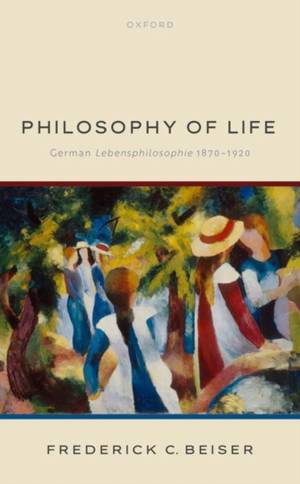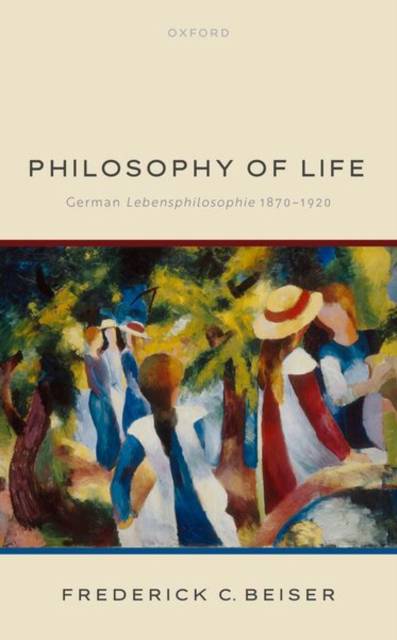
- Afhalen na 1 uur in een winkel met voorraad
- Gratis thuislevering in België vanaf € 30
- Ruim aanbod met 7 miljoen producten
- Afhalen na 1 uur in een winkel met voorraad
- Gratis thuislevering in België vanaf € 30
- Ruim aanbod met 7 miljoen producten
Zoeken
€ 135,45
+ 270 punten
Omschrijving
Philosophy of Life explores the intellectual movement called Lebensphilosophie, which flourished in Germany from 1870 until 1920. Author Frederick C. Beiser focuses on its most prominent members: Friedrich Nietzsche, Wilhelm Dilthey, and Georg Simmel. Lebensphilosophie appeared at a critical movement in Western culture; it was a response to several important cultural developments of the late 19th century: atheism, relativism, historicism and pessimism. The Lebensphilosophen believed that meaning of life had to be found in life itself and denied the relevance of any transcendent realm of meaning. To affirm the value of life, they reacted against Schopenhauer's pessimism; they proclaimed that the joys of life outweighed its sorrows, and that there is an infinite value in living life to its fullest. They developed a radical individualist ethic, which proclaimed the value of individual self-realization above all other goods. As part of this radical individualism, they disputed the existence of absolute moral values; and by insisting on the historicity of life, they affirmed the relativity of all values. This was the first intellectual movement in the Western tradition to develop an entirely secular and humanist conception of life. Many of its doctrines are familiar to students of Nietzsche; but readers will find that he was only one of an entire intellectual movement.
Specificaties
Betrokkenen
- Auteur(s):
- Uitgeverij:
Inhoud
- Aantal bladzijden:
- 184
- Taal:
- Engels
Eigenschappen
- Productcode (EAN):
- 9780192899767
- Verschijningsdatum:
- 20/07/2023
- Uitvoering:
- Hardcover
- Formaat:
- Genaaid
- Afmetingen:
- 140 mm x 206 mm
- Gewicht:
- 340 g

Alleen bij Standaard Boekhandel
+ 270 punten op je klantenkaart van Standaard Boekhandel
Beoordelingen
We publiceren alleen reviews die voldoen aan de voorwaarden voor reviews. Bekijk onze voorwaarden voor reviews.








